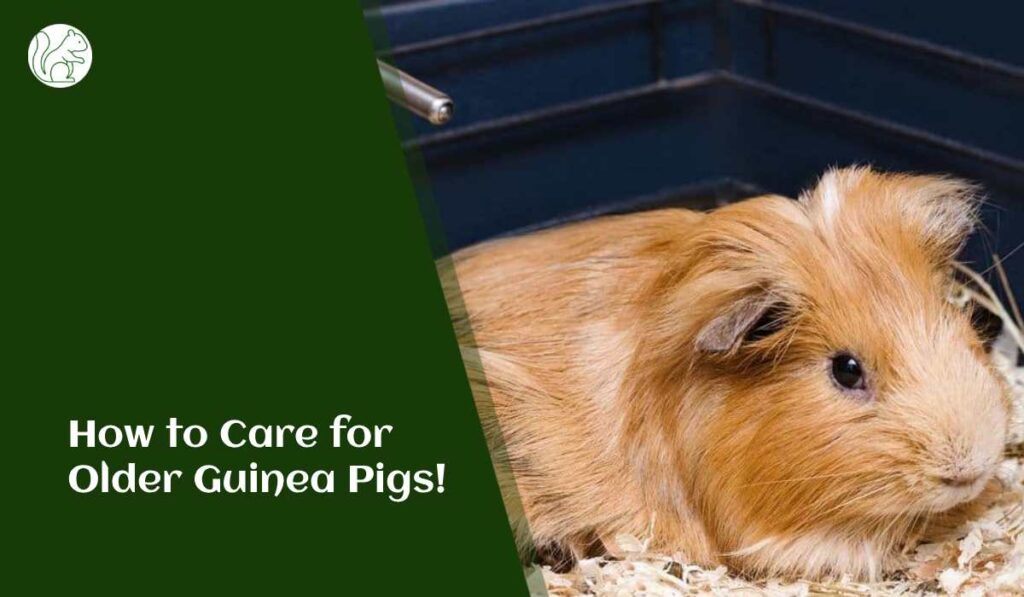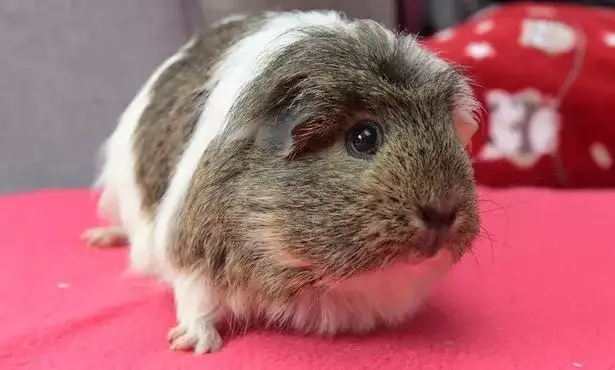Guinea pigs are delightful and affectionate pets that bring joy to many households. As your guinea pig ages, it requires extra attention and care to ensure a happy and healthy life. In this comprehensive guide, we’ll cover essential tips on how to care for older guinea pigs, keeping their well-being a top priority.

Regular Veterinary Check-ups
Just like any other pets, older guinea pigs need regular check-ups with a qualified veterinarian. These check-ups should be scheduled at least twice a year to monitor their health closely. A thorough examination by a vet can help detect and address any health issues early on, ensuring a higher quality of life for your furry friend.
Adjust Their Diet
As guinea pigs age, their dietary requirements may change. It’s vital to adapt their diet to meet their evolving needs. Older guinea pigs may require softer foods, as dental issues can arise with age. Ensure their diet is rich in Vitamin C, as guinea pigs cannot produce it naturally. Fresh vegetables like bell peppers, spinach, and broccoli are excellent sources of this essential nutrient.
Provide Easy Access to Food and Water
With age, guinea pigs may experience mobility challenges. To make mealtimes hassle-free, place food and water bowls in easily accessible locations within their enclosure. Keep an eye on their water intake and ensure a fresh supply at all times.
Maintain a Clean Living Environment
A clean and hygienic living space is crucial for your older guinea pig’s well-being. Regularly clean their cage, removing any soiled bedding and food remains. Use a safe, guinea-pig-friendly cleaning solution to avoid exposing them to harmful chemicals.

Monitor Their Weight
Keep a close eye on your older guinea pig’s weight, as sudden changes could indicate health problems. Weight loss might be a sign of dental issues or other underlying conditions. If you notice any significant fluctuations in weight, consult your veterinarian promptly.
Provide Comfortable Bedding
Choose soft and comfortable bedding for your older guinea pig’s cage. Avoid using materials that can be harsh on their sensitive skin or cause respiratory problems. High-quality paper bedding or fleece liners are excellent options for a cozy and safe enclosure.
Grooming and Hygiene
Older guinea pigs may find it challenging to groom themselves, especially in hard-to-reach areas. Help them by regularly grooming their fur and trimming their nails. Keep their living area clean and free from waste to prevent infections and other health issues.
Offer Plenty of Enrichment
Mental and physical stimulation is crucial for guinea pigs of all ages. Engage your older guinea pig with toys, tunnels, and chew items to keep them mentally active and prevent boredom.
Observe Their Behavior
Pay attention to any changes in your guinea pig’s behavior. Signs of lethargy, lack of appetite, or unusual vocalizations could indicate health issues. Promptly address any concerning behavior by seeking professional advice from a veterinarian.
Be Gentle and Patient
Older guinea pigs may become more sensitive to touch, so be gentle and patient when handling them. Avoid sudden movements that could startle or stress them. Respect their need for rest and quiet moments.
Provide Warmth in Cold Weather
Guinea pigs are susceptible to cold temperatures, and older ones may be more vulnerable. Ensure their cage is placed in a draft-free area and provide extra bedding or a snuggly hideaway to keep them warm during colder months.
Conclusion
Caring for older guinea pigs requires attentiveness, love, and compassion. Regular veterinary check-ups, a tailored diet, clean surroundings, mental stimulation, and a gentle approach are key to ensuring their well-being. By following these guidelines, you can make your beloved furry friend’s golden years comfortable and joyful. Cherish every moment you spend with them and create beautiful memories together. Happy guinea pig parenting!
